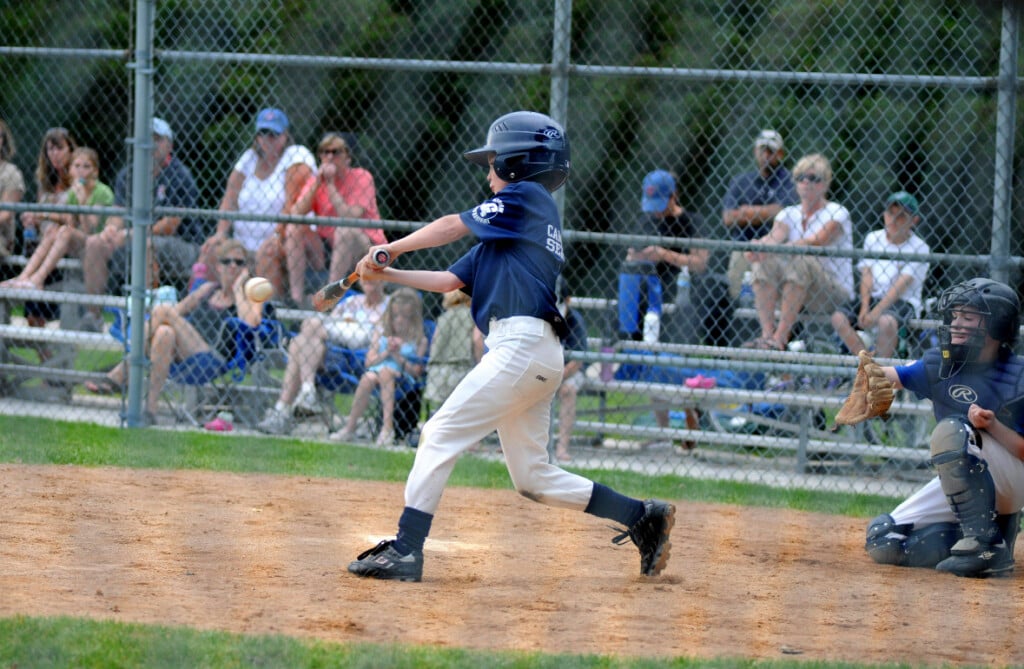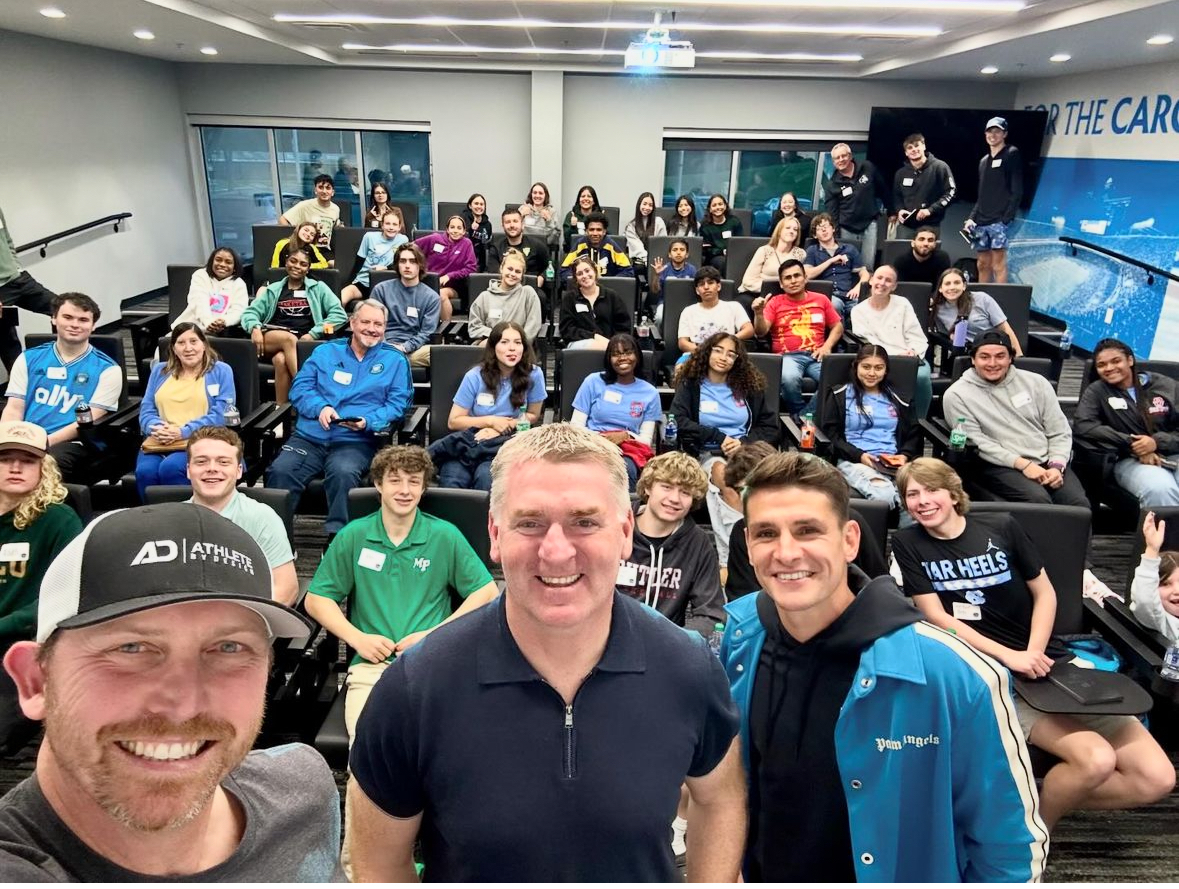10 Ways to be a Better Sports Parent From a Former NFL Coach
Expert Jeremy Boone’s tips on how to best support your little athletes

You don’t have to scroll social media too long to find videos poking fun of parents who behave badly at their children’s sporting events. They might cheer with a bit too much enthusiasm, question a coach, yell at a ref, or pressure their kid into thinking an Under-8 game is the World Series.
Sports parents have a bad rap long before social media took aim. But how, at a time when the youth sports industry is booming, can you get it right as a sports parent? We’ve heard a lot about what you shouldn’t do, but what should you?
Jeremy Boone, former speed coach for the Carolina Panthers, has been working with athletes for nearly 30 years as sports performance coach. As founder of the program Winning Leader and author of Parent Your Best, Boone offers practical ideas for what you can do to become the sports parent you—and your child—can be proud of. Here are 10 tips on how to be a great sports parent:
- Resist the urge to “specialize,” or focus on one sport, if your child is in elementary or middle school. As they develop and play multiple sports, it helps prevent injury and reduces the likelihood of injury when they get older. When they’re in middle and high school and the goal is getting into college or going pro, they’ll have more skills to pull from to be able to execute in their specific sport. And, of course, it prevents burnout.
- Limit the hours your child is in organized activities. For elementary kids up to 6th grade, a good rule of thumb for parents is this: When you add up all practices and games for the week, you don’t want it to go over the age of your child. My daughter Emma is 7. We made sure she stayed under 7 hours. With one soccer game, soccer practice, gymnastics, and tennis, it added up to around 5½ hours a week. When you limit the hours, not only does it prevent mental burnout, but it also limits the amount of money families are spending.
- Don’t break the bank on youth sports. A study came out in February that said families were spending one-fifth of their total annual gross income on youth sports. That’s not OK. Their relationship with their child becomes transactional instead of transformational. Love becomes conditional. Even with the best of intentions, the parents reinforce performance-based identity. That’s what we run into now with so many high school athletes who get hurt—they’re out. They don’t have the emotional intelligence, self-awareness, or self-efficacy to handle being hurt because everything’s wrapped up in the sport that they play. Now their identity is gone. Anxiety increases. Depression rises.
- Be present with your child. It’s a simple one, but really important. Being present means bringing all five senses when you’re with your kid. That’s what you should be doing with your spouse, with anybody. If I’m on my phone scrolling through Facebook while he’s playing…even when I’m talking to him, if we’re having a conversation, but I’m trying to listen to what this parent is talking about next to me, I’m not really present with my kid. Listening is not just with your ears. It’s with your eyes. It’s with your body language.
- Be positive on the ride home after a game. Be wary of sentences that start with, “Why did you…” “You should have…” “If you only…” Stick more with, “I love to watch you…” “You’re getting better every game…” “I’m proud of your effort today.” Even after a loss, you can say, “I know you are disappointed however…” As they get a little older though, you don’t want to say anything after the game, especially to preteens and teenagers because if they didn’t play well, their emotions are high. They can’t regulate all that testosterone and adrenaline going through their system, and they need time to come back down to planet earth. It’s best to wait.
- Don’t just celebrate victories. I’ve had buddies who, after their daughter scores a goal, they are saying, “Let’s go get ice cream.” But when they didn’t score a goal, we’ve got to go home. That’s making love conditional. It’s performance-based. That doesn’t mean you need to throw a party every time your child does something well, shows improvement, or makes a big play in their game. But if you only celebrate after wins or big achievements, maybe you’re not celebrating enough.
- Aim for connection with your child, not just communication. Connection is what I want for you. Communication is what I want from you. For example, I paid $400 for my son to go to a three-day volleyball tournament. If 90% of my conversation with him is, Did you eat healthy? Did you stretch? Did you do this? Did you do that?, this task list is a communication drill. Connection is, “Jay, what are you most excited about this tournament? What’s the story that you want to be able to tell beyond winning?” My son said, “I’m playing the number one beach volleyball player in the country. He’s 6-foot-7. I’ve got to block him all weekend. I can’t wait to see how I’m going to do.” Awesome. Let’s talk about that.
- If a child wants to quit a sport, wait until the end of the season – unless there are extenuating circumstances. If the coach has an environment that is respectful and player-focused and your child realizes maybe that sport just isn’t for them, or they’re not having the best time, that’s not a license for them to quit. They don’t learn anything about themselves. They don’t have a chance to develop resilience. But if the environment is disrespectful (a coach cursing around children, for example) that’s a different case where parents have to make a decision.
- Let your children take responsibility. For their cleats and equipment, for cleaning up after themselves in the dugout or on the bench, and when they’re older, for making and keeping their own schedule (with guidance if needed). I was running out to a school and I saw a plastic bag with cleats. It had a note from a dad with his daughter’s name and it said, “Hey, you forgot your cleats.” Well, I knew the dad really well. I took the bag. I wasn’t going to let him enable his daughter. I called him, and he was great about it. I said, “How often are you doing that?” He said they do it all the time. How does she learn to take ownership of what she’s doing?
- Only compare a child’s performance to his or her own. It’s so easy to fall into the trap of comparing your child with other players, siblings, or yourself back when you used to play. Again, that’s communicating that you value your child based on performance. You might compare a performance to a time when your child performed at the same skill well. Or better yet, just let the coaches coach and focus on encouraging your child to have fun!
CARROLL WALTON was a longtime sportswriter for the Atlanta Journal-Constitution and co-authored Ballplayer, the Chipper Jones biography, in 2017. Today she lives in Charlotte with her husband and three sons and continues to freelance for several media outlets.











